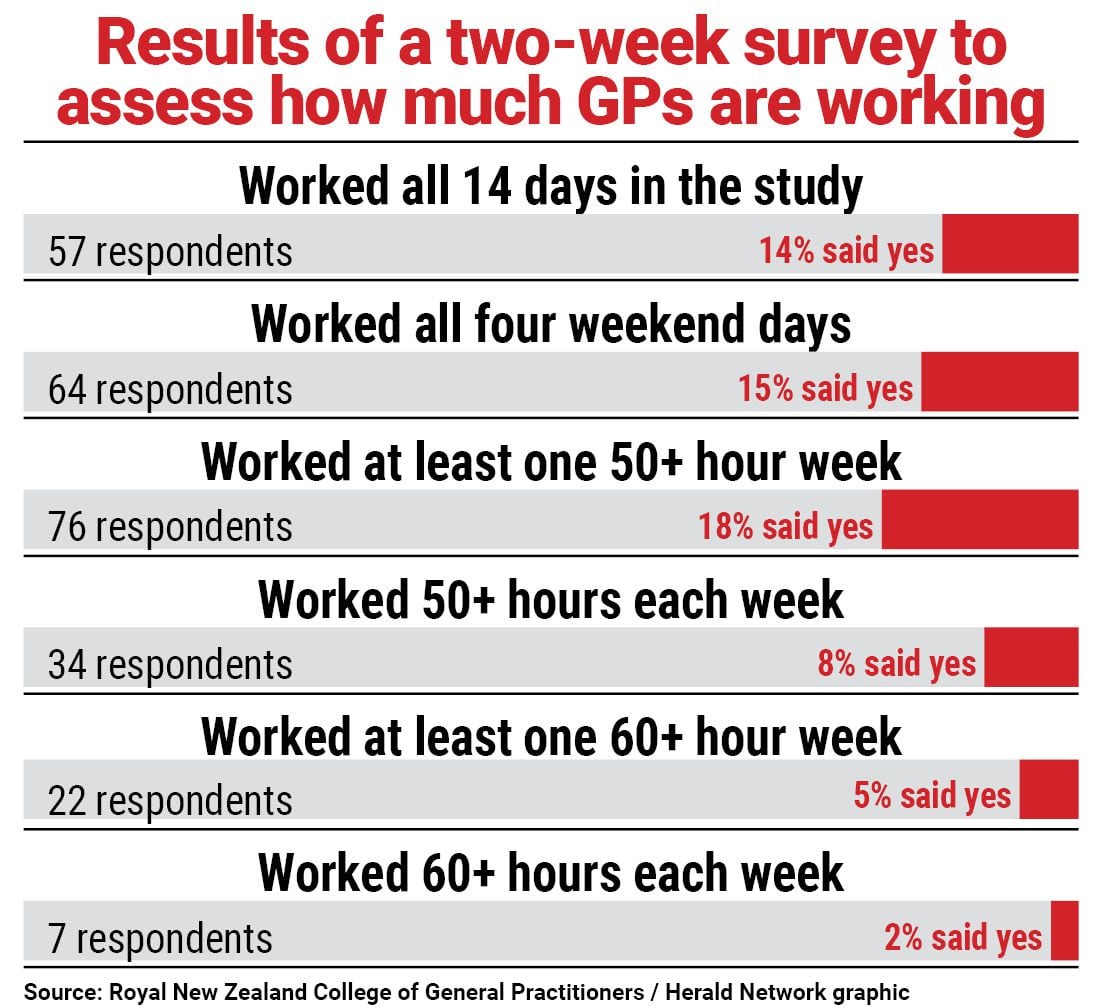
A Tauranga GP who works “at least” two to three hours per week in her evenings and weekends to do administrative work says current workload demands on GPs are “unsustainable”.
Dr Claire Isham says non-clinical work such as writing emails and referral letters is a “vital” part of the job. However, it is often “pushed into out of hours” due to the demand for patient consultations.
Isham says time for non-clinical work needs to be “protected” and resourced by increasing government funding for patient care.
Health NZ Te Whatu Ora has acknowledged the capitation funding system for general practice has “limitations” and has taken “some steps” to improve the way it funds general practice.
It comes as a GP clinic serving 6000 patients in Pāpāmoa is closing in April due to the GP shortage and government underfunding. A new GP clinic will open in Pāpāmoa in June at the site.
GP calls for ‘protected’ administrative time
Isham said she worked two days per week at the Bethlehem GP clinic Ngāti Kahu Hauora and three days at the Western Bay of Plenty Primary Health Organisation as clinical director.
She worked “at least two to three” hours in her evenings and weekends to do non-clinical work associated with the GP clinic.
Isham, who has been a GP for more than 20 years, said the majority of work at the clinic was “patient-facing”.
“There’s no protected time to then deal with other clinical-related workload that isn’t patient-facing so emails, patient results, clinic letters ... ACC reports, insurance reports, all the other correspondence that comes alongside seeing people face-to-face.”

Western Bay of Plenty Primary Health Organisation clinical director and Tauranga GP Dr Claire Isham. Photo / Alex Cairns
Isham said non-clinical work was a “vital” part of the job and some clinics would try to protect time for staff to do non-clinical work.
However, if it was done during “normal consulting time”, GPs had less availability to see patients.
“That’s why that work tends to then get pushed into out-of-hours.
“At the end of the day, the demands ... of the patients needing to be seen that day obviously take priority and the other stuff has to fit around that.”
Isham said the volume of non-clinical work had gone up “significantly”, which made it “unsustainable”.
Isham said a GP shortage was putting additional pressure on available appointments, which added to the need to push non-clinical work into out-of-hours.
“What would be ideal is if that time is recognised and resourced either through increasing the capitation available for patient care to allow people to have protected non-clinical time.”
Capitation-based payments from the Government are based on the number of patients enrolled with individual general practices who belong to a primary health organisation population, the Te Whatu Ora website says.
Ngāti Kahu Hauora general manager Reweti Te Mete said non-clinical work involved doing the paperwork required for the practice to access funding and remain open.
Te Mete said it would welcome any “necessary government intervention and support”.

Having paid time for non-clinical work ‘not an unreasonable expectation’
In a press release, Royal New Zealand College of General Practitioners medical director and Tauranga GP Dr Luke Bradford said four and a half hours of patient consultations generated three and a half hours of follow-up work and helped to explain why getting an appointment could be difficult.
“To make ourselves available to see more patients, many choose to move the non-contact clinical work into our evenings or weekends, or sacrifice training, teaching or clinical governance time to complete it.”
Tauranga GP and Royal New Zealand College of General Practitioners medical director Dr Luke Bradford. Photo / Mead Norton
“This is the work that we are not remunerated for, despite it being a core part of our role.
“Having dedicated and remunerated time to do important patient follow-up and administrative work during the day is not an unreasonable expectation to have. Neither is working more manageable hours and having a sustainable patient load.”
GP funding system ‘has limitations’ - Te Whatu Ora
Approached for comment, Te Whatu Ora Health NZ referred to a statement provided to the Bay of Plenty Times on March 7.
In the statement, Te Whatu Ora living well director Martin Hefford said it recognised general practice was the “cornerstone” of the health system, providing vital care to patients.
“We acknowledge that the current capitation funding system for general practice has limitations, as it does not include important factors such as socioeconomic status or ethnicity.”
Hefford said Health NZ acknowledged the pressures on the GP workforce and was addressing this through targeted international recruitment and domestic training.
He said Health NZ had taken “some steps” to improve the way it funded general practice capability and capacity.
Funding for all primary and community health services, including general practice, increased by 5 per cent from July 1 last year, he said in the statement.
Hefford said an equity adjustment to capitation had been implemented to lift funding for Māori- and Pacific-owned general practices, and those general practices with an enrolled population of at least 50 per cent Māori and/or Pacific, by a total of $24.4 million in 2023/24.
He said Health NZ was also adding more GP and nurse practitioner training placements and supported introducing new workforces into primary care through initiatives such as the comprehensive primary and community care teams.
Megan Wilson is a health and general news reporter for the Bay of Plenty Times and Rotorua Daily Post. She has been a journalist since 2021.
Take your Radio, Podcasts and Music with you









